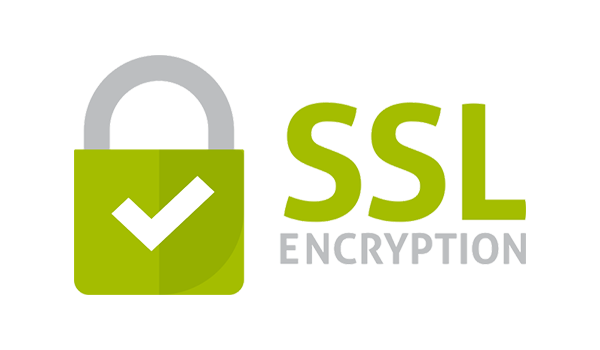Secure Private Data, Build Visitor Trust

SSL Certificates
From single domain protection to sub-domain security, we have the perfect SSL solution to safeguard your website.
$4/month
Billed annually at $48/year
$12/month
Billed annually at $144/year
$16/month
Billed annually at $192/year
$24/month
Billed annually at $288/year
Fully Managed SSL


Trusted Certificates
Frequently Asked Questions
Answers to some of the most frequently asked questions.
An SSL (Secure Sockets Layer) certificate is a digital certificate that establishes a secure and encrypted connection between a website and its visitors. It ensures that sensitive information such as passwords, credit card details, and personal data is transmitted securely, protecting it from hackers or unauthorized access.
When a website has an SSL certificate, visitors will see a padlock icon in the browser’s address bar, and the website URL will start with https:// instead of http://. This indicates the site is secure and trustworthy.
SSL certificates are essential for safeguarding customer trust, improving search engine rankings, and complying with data protection standards.
An SSL certificate is essential for ensuring the security, trustworthiness, and overall success of your website. It encrypts sensitive data, such as passwords, payment information, and personal details, protecting it from hackers or unauthorized access. By securing this data, an SSL certificate helps you build trust with your visitors, as they can see the padlock icon and https:// in your URL, signaling that your site is safe to use.
In addition to enhancing security and trust, an SSL certificate provides SEO benefits. Search engines like Google prioritize secure websites, so having an SSL certificate can improve your search engine rankings, making it easier for potential customers to find you. Many data protection regulations, such as GDPR, also require websites handling personal information to use encryption technologies like SSL. Without it, visitors may encounter browser warnings labeling your site as “Not Secure,” which can deter them from engaging with your site.
Whether you’re running an online store, a blog, or a business website, an SSL certificate is a vital component for maintaining a professional and secure online presence.
An SSL certificate plays an important role in securing your website, but it doesn’t make your site completely immune to hacking. SSL encrypts the data transferred between your website and its visitors, ensuring sensitive information, such as passwords and payment details, cannot be intercepted by hackers. However, it doesn’t protect your website itself from vulnerabilities like malware, insecure plugins, or weak passwords.
While SSL is a crucial layer of security, it should be part of a broader website protection strategy. Regular updates, strong password policies, a reliable web host, and additional security measures like firewalls and malware scanning are essential for keeping your website safe. Think of SSL as the foundation of online security—it’s necessary, but it works best when combined with other protective tools and practices.
Once installed, your website will display a padlock symbol or "Connection is Secure" notification in the browser’s address bar, and your URL will start with “https://”. You can also use online tools to verify your SSL installation and ensure it’s functioning correctly. A website not SSL protected or configured properly for SSL will show "Not Secure" or a broken padlock symbol.
The main difference between a standard SSL certificate and a Wildcard SSL certificate lies in the number of domains or subdomains they can secure.
A standard SSL certificate secures a single domain, such as example.com. It ensures that all data exchanged on this domain is encrypted and protected. If you need to secure additional subdomains, like shop.example.com or blog.example.com, you would need separate SSL certificates for each one.
A Wildcard SSL certificate, on the other hand, secures your main domain and an unlimited number of subdomains under it. For example, a Wildcard SSL for example.com would also secure shop.example.com, blog.example.com, and any other subdomains you might use. This makes Wildcard SSL an efficient and cost-effective solution for websites that operate with multiple subdomains.
Both types provide the same level of encryption and security, but Wildcard SSL is designed for greater flexibility and scalability when managing multiple subdomains.
The renewal frequency of an SSL certificate is every 12 months. Once the certificate expires, your website will no longer display as secure, and visitors may see warnings indicating the site is not safe to use.
To avoid disruptions, it’s important to renew your SSL certificate before its expiration date. WP Hosting offers automated renewals to ensure your SSL certificate stays active. Renewing on time helps maintain the trust of your visitors, ensures uninterrupted data security, and keeps your site compliant with modern web standards.
Free SSL certificates, like Let’s Encrypt, provide basic encryption and Domain Validation (DV), making them suitable for personal websites or small projects. However, they lack advanced features, customer support, and warranty protection, and require frequent renewals.
Paid SSL certificates offer higher validation levels (OV or EV), enhanced security features, warranties, and expert support. They’re ideal for businesses and e-commerce sites that need to build trust and provide a professional, secure experience.
The SSL warranty provides financial protection in the unlikely event that there is a breach of the SSL certificate due to a flaw in its issuance or a failure in its validation process by the Certificate Authority (CA). Specifically, it covers losses incurred if a user experiences a breach of sensitive data (e.g., credit card information, login credentials, or personal details) during a secure transaction where the SSL certificate was properly installed and in use.
The warranty does not cover issues arising from misconfiguration, negligence, or misuse by the website owner, such as failing to renew the certificate, improper installation, or vulnerabilities elsewhere in the site. Each SSL warranty amount varies depending on the type of SSL certificate purchased (e.g., Domain Validation, Organisation Validation, or Extended Validation), so it’s important to review the terms provided by the Certificate Authority.
Looking For Something Else?
With a wide range of WordPress hosting solutions, you’ll find the perfect fit for your requirements.

